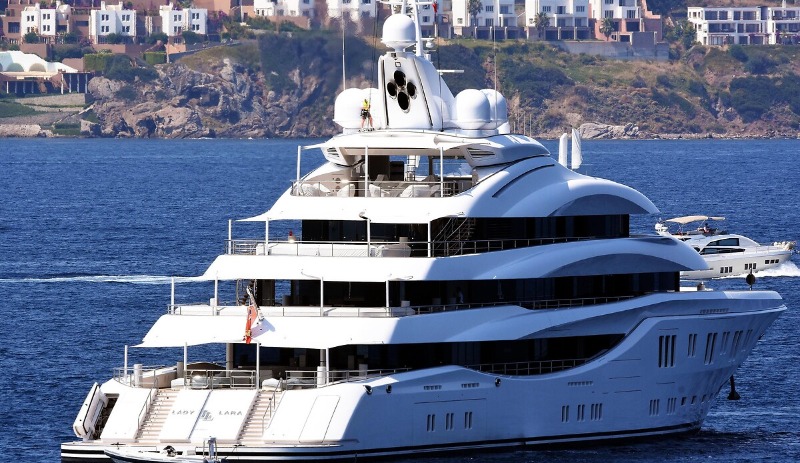Superyachts of Russian oligarchs that find safe haven in Turkey raised concerns in Washington, as a symptom of a much larger evasion of U.S. sanctions against Russia, The New York Times said on Monday.
While some superyachts owned by or linked to Russian oligarchs facing sanctions have been seized in ports around the world, many found safe haven in Turkey, the only NATO member not to impose sanctions on Russia, The New York Times said.
Ankara opposes Western sanctions on Russia and ramped up trade and tourism with its northern neighbor. But Ankara also pledged that the sanctions will not be circumvented in Turkey.
Senior U.S. Treasury Department official Elizabeth Rosenberg visited Turkey last week to discuss sanctions and export controls imposed on Russia due to war on Ukraine, the Treasury Department said on Wednesday, as Western countries increase pressure on Turkey because of its economic ties with Moscow.
According to an analysis by the New York Times, at least 32 yachts tied to oligarchs and sanctioned entities hidden behind layers of shell companies have sheltered in Turkey’s waters in recent months, freely moving about without fear of seizure.
The newspaper said that the marinas continue to serve the sanctioned Russians and their superyachts.
Especially, the Port Azure in Gocek was singled out in harboring Russian yachts as it advertised on its web site that this magical place was a “haven” which made “problems big and small go away.”
In June, a video posted on Instagram showed a lineup of five Russian yachts collectively worth almost $1 billion at Port Azure.
Daniel Tannebaum, a former sanctions official who served at the U.S. Treasury and the Federal Reserve Bank of New York said that the US had tools at its disposal to enforce its sanctions on the Russian oligarchs, even if their vessels are in Turkish waters and even if the Turkish government is unwilling to cooperate.
The US could place sanctions on the marinas, caterers and fueling companies that service the oligarchs’ yachts in Turkey thus making them to take their business elsewhere, while the banks that do business with these companies might close their accounts so as to avoid becoming a target, Tannebaum said.
Source:gerceknews



